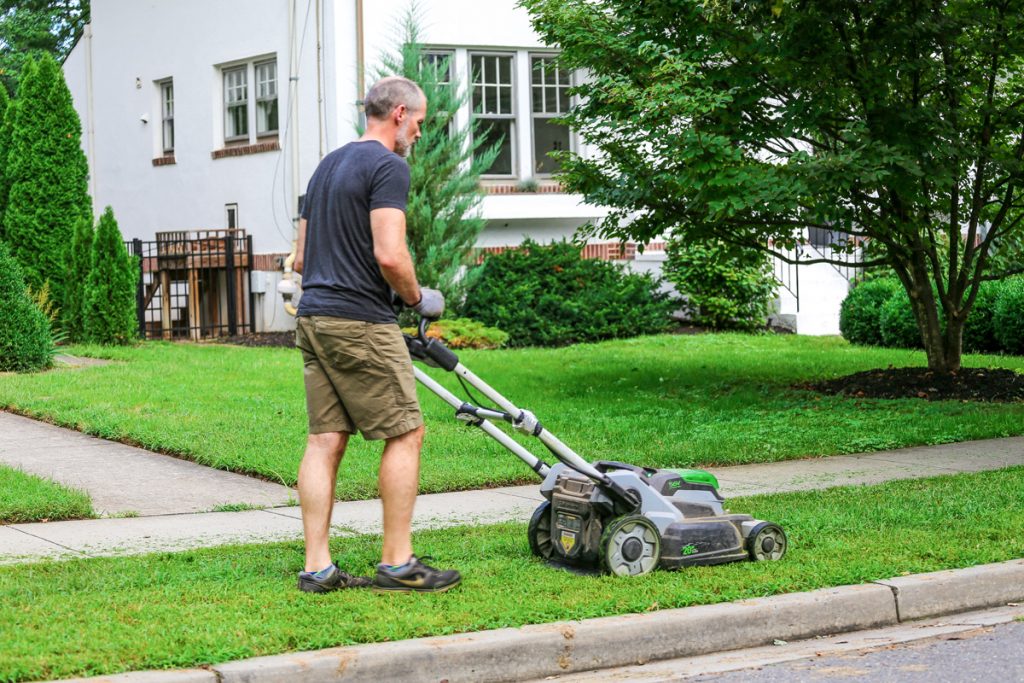In spite of considerable noise and excessive emissions, gas-powered mowers and leaf blowers are everywhere.
Consider alternatives to gas-powered so we can all breathe a little easier.
Go electric.
Battery-powered machines sharply reduce air pollution and are significantly quieter than gas-powered versions. And best of all, comparable electric equipment is now readily available in local stores.
Ensure any leaf blowers or mowers used on your property follow the rules stated in Princeton’s noise ordinance. This means no operation before 8 a.m. Monday through Saturday or before 10 a.m. on Sunday. In addition, leaf blowers must be equipped with mufflers.

Get some exercise.
- When possible, use rakes and brooms to move leaves around. This is especially true at the beginning or end of the season when there are relatively few leaves to collect.
- Manual reel mowers effectively cut grass and are practical for small yards. Numerous models are available, including newer light versions. They are also smaller to store.
- Go low-maintenance. You don’t have to spend so much time and money on your lawn. Replace turf with native groundcovers, trees, shrubs, or perennial flower beds for a low-maintenance approach.
Did you know?
- Hire a quiet landscaper. Refer to our Sustainable Landscaper Resource List for landscapers that provide sustainable landscaping services. Quiet Princeton also maintains a list of landscapers, that are willing to manage leaves without a leaf blower.
- Mow high. Mow grass with a sharp blade and as high as possible (3-4”).
- Feed your soil. Return shredded grass clippings to the lawn. This provides much-needed nutrients for future growth.
Let's work on a solution to remove air and noise pollution.
- According to one study, nearly 30 million tons of pollutants were emitted by gas-powered lawn and garden equipment in a single year.
- One analysis found that a commercial gas-powered leaf blower emits the same pollutants as a Toyota Camry on an 1100-mile drive.
- A single gas-powered leaf blower can create 90 or more decibels of noise, which has serious hearing implications for operators, as well as surrounding neighbors.


